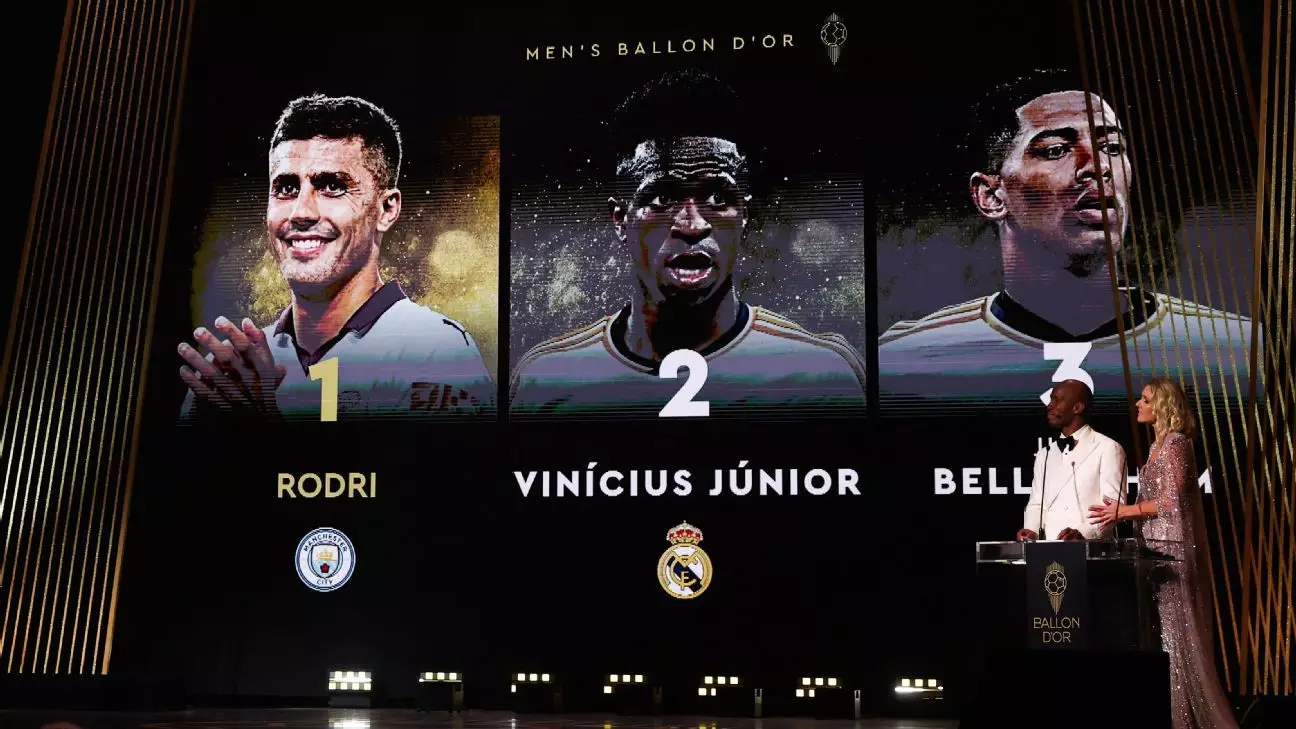In the world of football, few events generate as much discussion and fervor as the Ballon d’Or ceremony. While some may view it as an esteemed accolade for individual brilliance, others perceive it as a hollow spectacle fueled by media hype. This article delves into the intricate dynamics surrounding the Ballon d’Or, exploring why it continues to captivate not just fans, but also the players themselves, despite its perceived lack of significance.
For many fans, the Ballon d’Or holds a particularly nostalgic value that reaches back to the sport’s golden eras. The award itself has been around since 1956, evolving from a magazine accolade to an event that garners international attention. Past winners have included legends whose careers have shaped football as we know it today, creating a rich tapestry of achievement. However, the award’s eligibility criteria have shifted over the years and it has faced scrutiny over its selection process, especially given that non-European players were historically excluded. The memory of players like Sokol Kushta, who ranked 30th back in 1987, serves as a reminder of the complexities entwined in the contest. Kushta’s selection represented a sense of accomplishment amidst giants like Marco Van Basten and Ruud Gullit, highlighting the weight placed on individual recognition within a team sport.
The emotional investment players place in the Ballon d’Or reflects a deep-rooted desire for acknowledgment that transcends mere statistics and trophies. For them, personal accolades symbolize validation in their arduous journeys through professional football. This was made glaringly evident when Real Madrid decided to boycott this year’s ceremony after hearing that their star player, Vinícius Júnior, would not take home the award. Their drastic measure underscores how much esteem players hold for the Ballon d’Or. High-profile names speaking out against the perceived injustice—characterizing the event as “football politics” or “a robbery”—reinforces its significance, regardless of its actual merit.
Interestingly, it raises the question: why do players care so deeply about the judgment of journalists and pundits? Perhaps it is an instinctive reaction rooted in the competitive fabric of their identities. Winning accolades is a familiar pursuit for professionals who have adjusted to thriving in pressure-filled environments. Yet, this ambition can also come across as perplexing, given players’ achievements on the field—championships, records, and global recognition—often seem like sufficiency in themselves.
While many may dismiss the Ballon d’Or as an extravagant charade, its cultural relevance cannot be denied. A perfect example of this phenomenon is the recent decision by streamer IShowSpeed to livestream the event, attracting a massive audience captivated by his presence rather than the underlying award ceremony. The staggering number of viewers tuning into his commentary, rather than the official broadcasts, reflects a shift in how audiences engage with sports culture today. IShowSpeed’s stream provided a fresh layer to an event that many traditional football fans find contrived or over-hyped.
While the essence of the Ballon d’Or derives from performances on the pitch, it simultaneously serves as a battleground for the media, where narratives are constructed, deconstructed, and ultimately celebrated. The media’s role in creating the allure cannot be underestimated, as they frame contests of excellence through stories, rivalries, and the artistry of individual players. This creates a feedback loop, wherein players strive for higher accolades, validating the media’s emphasis on awards like the Ballon d’Or.
Although the Ballon d’Or is merely a trophy, its cultural imprint is of historical significance, especially as football transitions toward an era characterized by individual narratives like never before. The 2023 ceremony marked a departure from the era dominated by Lionel Messi and Cristiano Ronaldo, with Rodri emerging as the winner – a feat that some would hardly have anticipated. The ensuing debate illuminates the unease surrounding the award’s relevance in the contemporary narrative of football.
This fluctuation in cultural prominence, from the duopoly of Messi and Ronaldo to newer names like Rodri, invites broader questions about legacy, societal values, and competitive spirit. The notion that footballers look for validation and honor from a group of journalists—and indeed, the sociocultural implications of that—poses a curious paradox. Players possess remarkable abilities to control their fates on the pitch, yet they find themselves subject to external opinions that often feel meaningless.
The Ballon d’Or stands at the crossroads of personal ambition, media influence, and cultural perception. Although some may dismiss its importance, the ongoing dialogue around this award reveals much about our values and the essence of competitive sports. The drama, the controversies, and the celebrations encapsulated in the Ballon d’Or endure, elevating the event’s stature above mere trinkets, even as we critically evaluate its true value in the grander narrative of football.
